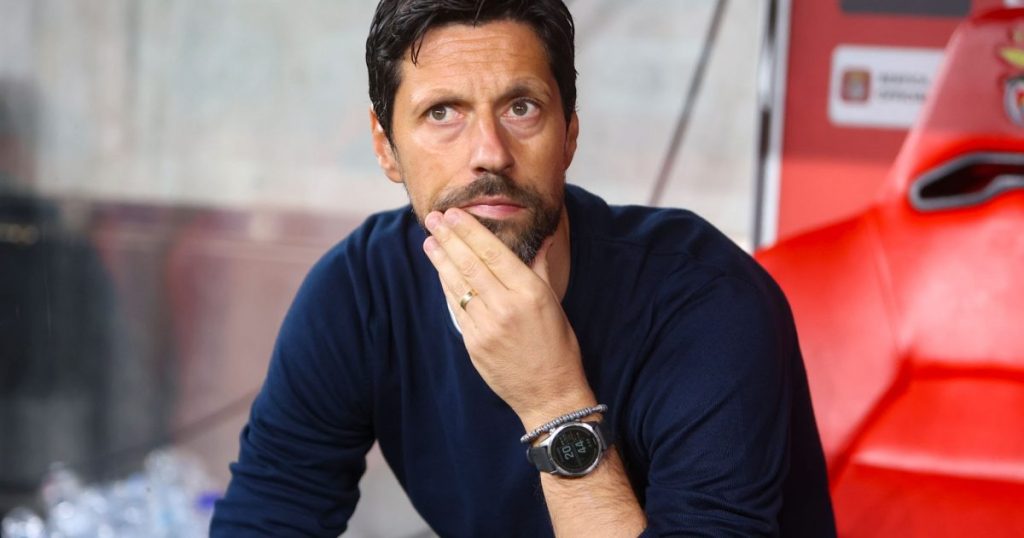The tumultuous landscape of Portuguese football witnessed yet another managerial casualty as FC Porto announced the termination of Vítor Bruno’s contract on Monday. This dismissal marks a significant development in the Primeira Liga, making Bruno the third coach to be relieved of his duties from one of Portugal’s “Big Three” clubs this season, following earlier upheavals at Benfica and Sporting Lisbon. The quick succession of coaching changes underscores the intense pressure and high expectations placed upon managers in Portugal’s top flight, where even minor setbacks can trigger drastic consequences.
Bruno’s tenure at Porto, which began in the close season following the departure of Sergio Conceição to AC Milan, proved to be short-lived. His dismissal came on the heels of a series of disappointing results, most notably back-to-back league defeats that saw Porto lose ground in the title race. A 3-1 loss to Gil Vicente on Sunday, compounded by an earlier defeat to Sporting Lisbon in the League Cup semi-finals, sealed Bruno’s fate. These setbacks left Porto in third place in the league standings, four points adrift of leaders Sporting and trailing second-placed Benfica, highlighting the club’s perceived underperformance under Bruno’s leadership.
The decision to replace Bruno reflects the demanding nature of the Portuguese football environment, where even relatively recent appointments can be swiftly dismissed if results do not meet expectations. Porto’s hierarchy clearly felt that a change was necessary to revitalize the team’s fortunes and reignite their title aspirations. The club has appointed José Tavares, the academy director, as interim coach while they search for a permanent replacement. Tavares faces the challenging task of stabilizing the team and closing the gap on the league leaders, while also navigating the complexities of managing a squad of experienced and highly competitive players.
The revolving door of managerial appointments at Portugal’s top clubs this season underscores the volatile nature of the coaching profession at the highest level. Benfica’s decision to part ways with Roger Schmidt at the end of August set the stage for this season of managerial instability. Sporting Lisbon followed suit, sacking João Pereira, Ruben Amorim’s successor, just a month after Amorim’s departure for Manchester United. These rapid changes indicate the ruthlessness of club owners and the immense pressure to achieve immediate success, even in the face of long-term strategic planning.
The frequency of managerial dismissals raises questions about the long-term stability and strategic direction of these clubs. While a change in leadership can sometimes provide a much-needed spark, the constant upheaval can also disrupt team cohesion and hinder the development of a consistent playing style. The challenge for Porto, Benfica, and Sporting will be to find the right balance between demanding immediate results and allowing coaches the time and resources to build a sustainable and successful future for their clubs.
The case of Vítor Bruno serves as a stark reminder of the precarious nature of football management. Despite being entrusted with the reins of one of Portugal’s most prestigious clubs, his tenure was abruptly cut short due to a series of unfavorable results. The pressures of managing at the top level, coupled with the demanding expectations of fans and club ownership, create a high-stakes environment where job security is often fleeting. As Porto embarks on the search for a new manager, the question remains: can they find a leader who can navigate the turbulent waters of Portuguese football and restore the club to its former glory? The answer will undoubtedly shape the landscape of the Primeira Liga for seasons to come.


